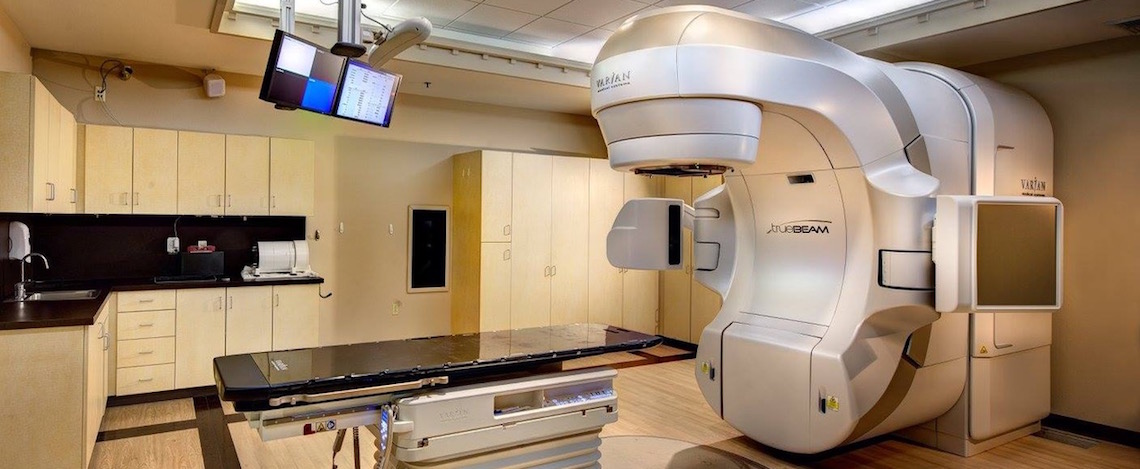
The Fresno Cancer Center has earned the American Society for Radiation Oncology’s Accreditation Program for Excellence designation. Image via Fresno Cancer Center Facebook
Written by
The Fresno Cancer Center has received a prestigious accreditation given to less than 5% of such facilities in the U.S.
The American Society for Radiation Oncology’s (ASTRO) Accreditation Program for Excellence (APEx) can take up to a year to complete and focuses on five “pillars” of patient care. These include the process of care, the radiation oncology team, safety, quality management, and patient-centered care, according to a news release.
Fresno Cancer Center was one of three such facilities in the state to recently achieve APEx status, along with Rohnert Park Cancer Center and South Sacramento Cancer Center. The three centers comprise the practice of US Cancer Management Corp. (USCMC), which operates the facilities.
“By undergoing this comprehensive review, the facilities demonstrated a strong commitment to deliver safe, high-quality radiation oncology services to their patients,” said Theodore L. DeWeese, MD, FASTRO, chair of the ASTRO board of directors.
ASTRO bills itself as the “premier radiation oncology society in the world” whose members include 10,000 physicians, nurses, radiation therapists and more who specialize in treating patients with radiation therapies.
Jeremy Mann, chief operating officer of USCMC, said, “We are extremely pleased to be awarded APEx accreditation. We are proud of the efforts of all of our staff to provide the absolute pinnacle of care to our patients and are appreciative of the recognition we have received from ASTRO.”
Valley Children’s expands epilepsy monitoring
Valley Children’s Hospital hosted a ribbon cutting Tuesday for a new facility on its Madera campus that will serve as an Epilepsy Monitoring Unit.
The unit includes six rooms with hard-wired beds, nine portable monitoring machines and a play area. It will be used for epilepsy patients who need to be monitored over extended periods of time.
The facility also includes video cameras in each room and throughout the hallways, allowing patients more freedom of movement while still being monitored for epileptic activity over consecutive days.
“When patients have to be monitored over several days in our Epilepsy Monitoring Unit, it can be stressful on both the patient and the families,” said Medical Director of Neurosciences Dr. Cesar Santos. “With this new facility, patients and families will be next door to others experiencing the same problems, creating a community for each other.”
The EMU is part of Valley Children’s level 4 Epilepsy Center, which provides comprehensive services from epilepsy monitoring to the most innovative surgical options.
“Our Valley Children’s neuroscience center provides everything a patient would need from a fully comprehensive Epilepsy Surgery Program,” says Medical Director of Neurosurgery Dr. Patricia Clerkin. “This allows patients to be monitored and tested, discuss a variety of treatment options, receive surgical intervention if need be and recover all in the same building, with the same neuro team.”
Currently there are approximately 12,000 children living with epilepsy in the Central Valley. While one-third of these cases are not controllable with medication, technology at Valley Children’s such as surgical robots and laser ablation provide advanced and innovative options for patients, according to a news release.
Kaiser grant addresses Hmong community mass shooting
Kaiser Permanente has made an $80,000 grant to the Fresno Center’s Mass Shooting Victims Support Program, which helps fund mental health counseling and other support services to those affected by last November’s mass shooting that killed four members of the Hmong community in Fresno.
The grant will help support additional mental health service hours and counseling to the victims’ families as well as case management oversight and support. Wellness classes, meditation, yoga and other resources also will be made available to those affected by the tragedy.
“We are committed to helping the community heal from this tragedy and want to provide mental health support to those in need,” Kaiser Permanente Fresno Senior Vice President and Area Manager Wade Nogy said. “We hope this grant along with the others we’ve provided in the past to The Fresno Center will help to break down the stigma associated with mental health issues in the Southeast Asian community.”
For the past two years, Kaiser Permanente has provided a $150,000 grant to the Fresno Interdenominational Refugee Ministries (FIRM) to help reduce barriers to treatment and increase the capacity to serve the mental health needs of southeast Asians. FIRM works in conjunction with Stone Soup Fresno and The Fresno Center to support Fresno County’s Hmong, Laotian and Cambodian communities.
The Fresno Center — a hub for the Southeast Asian community in Fresno — is grateful for the ongoing support and says the grant will provide a holistic approach to healing for the Hmong community.
“I am very appreciative of the support from Kaiser Permanente,” said Pao Yang, CEO of The Fresno Center. “We want to ensure that the residents affected from the mass shooting that happened Sunday, Nov. 17th in Fresno are supported. This grant will help us to expand our services lending to a one-stop crisis support center for incidences of disaster. Our aim is to provide relief in these unfortunate situations.”








